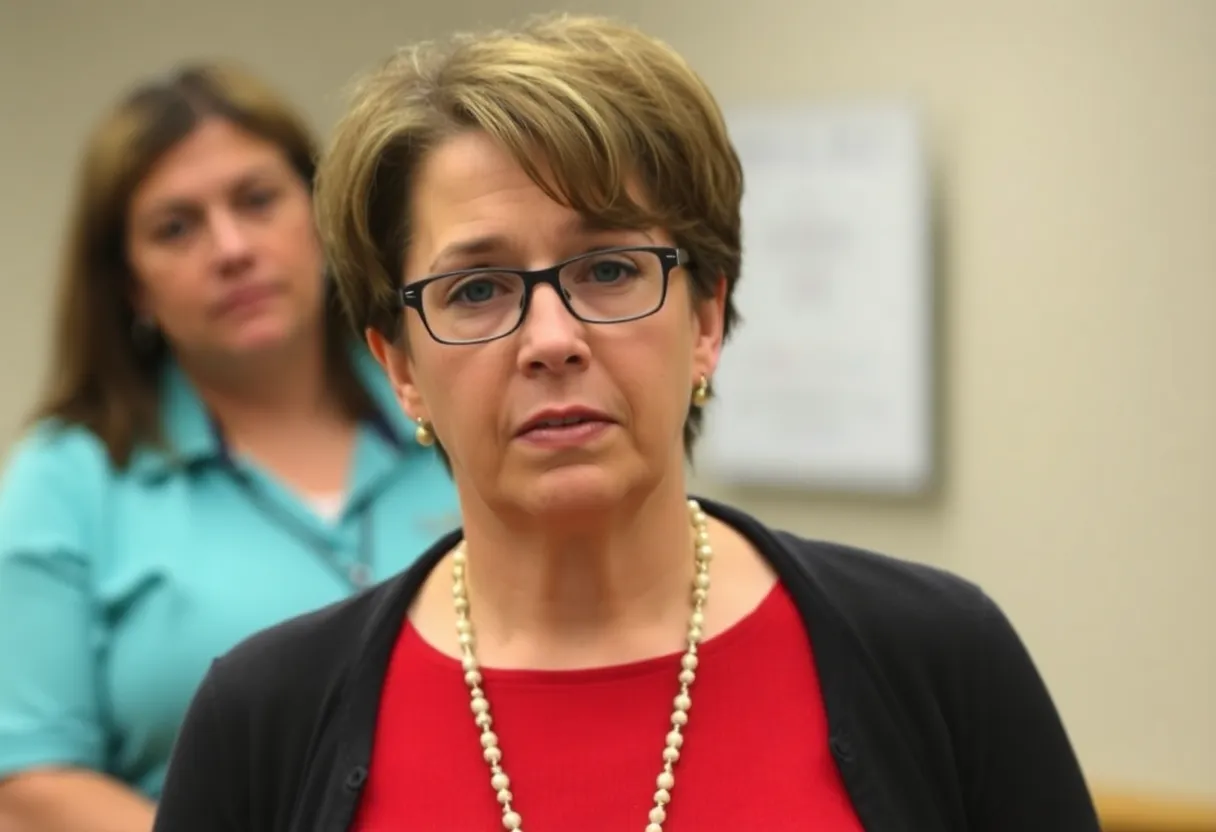Columbia: Susan Smith’s Parole Eligibility Complicated by Recent Disciplinary Charges
Susan Smith, 53, who has been incarcerated for nearly 30 years for the murder of her two young sons, faces new challenges as she approaches her parole eligibility date on November 4 this year. Just a month before she qualifies for parole, Smith was found guilty of an internal disciplinary charge related to communications with a filmmaker about the crime that led to her imprisonment.
The Charges and Consequences
The disciplinary hearing determined that Smith, who has spent the majority of her time at the Leath Correctional Institution, had violated prison rules by engaging in conversations that included discussions about her past crimes. On October 3, Smith was convicted of communicating with a victim or witness, leading to a 90-day loss of her privileges to use the telephone, tablet, and canteen, which began the following day.
Reports indicate that Smith frequently used the tablet for phone calls, often discussing routine topics with several men, including car repairs and movies. However, conversations included compliments aimed at Smith, with one caller stating, “You’re such a good-looking woman, that’s pretty obvious but your personality you care about people.”
Public and Family Reaction
Smith’s ex-husband, David Smith, who is the father of her slain sons Michael, 3, and Alex, 14 months, has expressed his strong opposition to her potential release. In a recent interview, he described the notion of supporting her release as “absurd” and emphasized his commitment to reminding the parole board about the victims of her crime.
The Background of the Case
The tragic case dates back to September 1994 when Smith infamously claimed her children were abducted by a Black man in a carjacking. Her confession nine days later revealed that she had allowed her vehicle to roll into John D. Long Lake, where both sons tragically drowned. This shocking admission solidified her conviction and subsequent life sentence.
Smith’s Recent Conduct
During the disciplinary proceedings, it was revealed that Smith agreed to provide the filmmaker with contact information for friends, family, and victims. The filmmaker also deposited money into Smith’s prison account, raising further questions about her conduct behind bars.
According to a spokesperson for the South Carolina Department of Corrections (SCDC), inmates are prohibited from participating in interviews over the phone or in person, although they may correspond through letters. Smith’s use of the tablet appears to have strayed from these guidelines.
Implications of Disciplinary Actions
Chrysti Shain from SCDC stated that the department will decide if Smith is allowed to use a tablet again. The October incident marked her first infraction in ten years, but previous charges have included drug-related offenses and a mutilation charge.
The current situation has drawn public scrutiny and reshaped her image, with calls revealing Smith engaging in light-hearted banter and expressing feelings of excitement and affection toward the men she spoke with. Some recordings suggest more intimate exchanges, with one man indicating their conversations were shared with the media, leaving Smith visibly surprised.
Future Considerations
An approval rate for parole applications sits at approximately 6%, placing Smith’s chances of release in a precarious position amid the recent misconduct and notable public opposition from the victims’ family. The outcome of her parole consideration will undoubtedly be influenced by the various facets of her conduct both inside and outside prison walls.
This development highlights the ongoing complexities surrounding Smith’s case as she seeks freedom following decades of incarceration.







